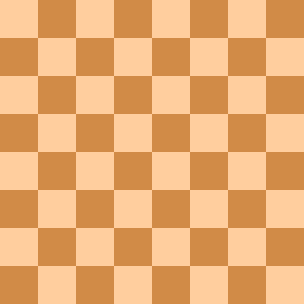Queen's Knight Defense
The Queen's Knight Defense (also known as the Nimzowitsch Queen Pawn Defence or Bogoljubow–Mikenas Defense) is a chess opening defined by the moves:
| |||||||||||||||||||||||||||||||||||||||||||||
| Moves | 1.d4 Nc6 | ||||||||||||||||||||||||||||||||||||||||||||
|---|---|---|---|---|---|---|---|---|---|---|---|---|---|---|---|---|---|---|---|---|---|---|---|---|---|---|---|---|---|---|---|---|---|---|---|---|---|---|---|---|---|---|---|---|---|
| ECO | A40 | ||||||||||||||||||||||||||||||||||||||||||||
| Parent | Queen's Pawn Game | ||||||||||||||||||||||||||||||||||||||||||||
| Synonym(s) | Nimzowitsch Queen Pawn Defence Bogoljubow–Mikenas Defense | ||||||||||||||||||||||||||||||||||||||||||||
Unless the game transposes to another opening, the Encyclopedia of Chess Openings code for the Queen's Knight Defense is A40.
Discussion
This opening was tried by some hypermodern players such as Aron Nimzowitsch and Efim Bogoljubov, but it has never become very popular. The move 1...Nc6 is a fairly committal move which blocks Black's c-pawn; usually Black delays playing it until White's setup is clear.
Most games featuring 1.d4 Nc6 transpose to another opening. After 2.e4 the Nimzowitsch Defense arises. After 2.Nf3 d5 a variation of the Queen's Pawn Game is possible. After 2.c4 d5 the opening is a Chigorin Defense.
There are some lines which are unique to 1.d4 Nc6, most importantly 2.d5 which chases the knight away, usually to e5. The opening resembles an Alekhine's Defence but on the opposite side of the board. In an opening book by Sid Pickard, this variation was called the Bozo–Indian Defense – "Bozo" being a combination of the prefixes "Nimzo" and "Bogo".
The Queen's Knight Defense was featured (although not mentioned by name) in the season four episode of Chuck entitled "Chuck Versus the Family Volkoff".
Variations
- 2.d5 Nb8 (Montevideo Retreat)
- 2.c4 e5 3.d5 Nd4 (Cannstatter Gambit)
- 2.c4 e5 3.d5 Nce7 (Lithuanian Variation)
Illustrative games
Erich Weinitschke vs. Efim Bogoljubov, Bad Elster (Germany) 1938:
1. d4 Nc6 2. d5 Ne5 3. f4 Ng6 4. e4 e5 (this position more commonly occurs from the Nimzowitsch Defense by 1.e4 Nc6 2.d4 e5 3.d5 Nce7 4.f4 Ng6) 5. f5 Qh4+ 6. Kd2 Qxe4 7. fxg6 Qxd5+ 8. Ke1 Qxd1+ 9. Kxd1 hxg6 10. Nc3 c6 11. Nf3 f6 12. Bd3 Ne7 13. Re1 d5 14. h3 e4 15. Bxe4 dxe4 16. Nxe4 Kf7 17. Bd2 Nf5 18. b3 g5 19. Ke2 Nd6 20. Nf2 Bf5 21. Nd4 Bg6 22. Kf1 Nf5 23. Ne2 Bc5 24. Ne4 Bb6 25. c4 Rad8 26. Red1 Rxd2 27. Nxd2 Ne3+ 0–1[1]
References
| The Wikibook Chess Opening Theory has a page on the topic of: Queen's Knight Defense |
- David Hooper and Kenneth Whyld (1996). The Oxford Companion to Chess (2nd ed.). Oxford University. ISBN 0-19-280049-3.
- Eric Schiller (1997). Unorthodox Chess Openings. Cardoza. ISBN 0-940685-73-6.
